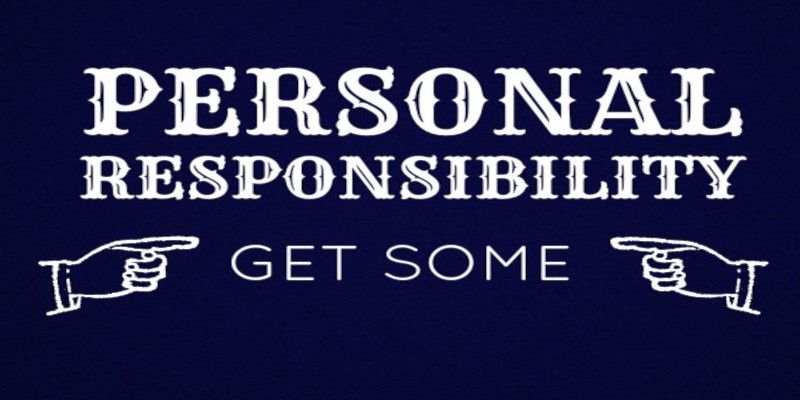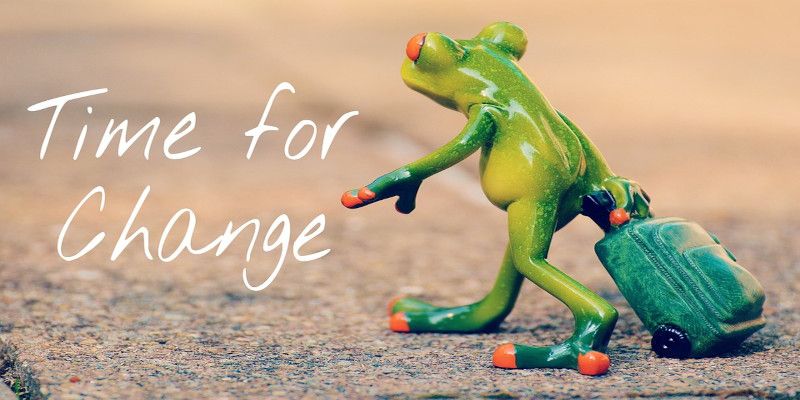Table of Contents
ToggleDepression is also known by some as the silent killer, and for good reasons.
Little did I know I was going to find out firsthand why this disease was called this way.
Because early on in my life, before the age of 16, everything was perfect. I did well in school, had loving parents, and in general, a caring family. I had a lot of friends at school and excelled at sports.
Things were easy back then. The only ounce of responsibility I had was making sure I passed school.
But around the age of 16, things started to take an unfortunate turn for the worse. Let me explain why.
My experience with depression

Around the age of 16, my world started changing rapidly.
I was not feeling as happy and optimistic anymore as I previously did. At first, I thought it was just a phase that everyone around my age was going through and that it would pass as quickly as it came. But it didn’t.
I had a very hard time adjusting to my rapidly changing environment and handling the pressure that I felt was being put on me. Everyone was busy figuring out, or, already knew what they were going to study in the future. I, however, did not.
I didn’t know what I was going to do with my life. Not only that, but I had no direction whatsoever. I was a loose cannon. An unguided projectile.
Add in the fact that responsibility started to come around at that age, while I was still an immature and wild man at heart. I was too busy partying, drinking, and even frequently getting into fights.

It was not that I was a violent man, but I think the anxiety, negative emotions, overall feeling of helplessness, and sense of feeling lost in this world got to me. To the point of getting into physical confrontations with others. The physical confrontations were a reflection of my poor mental state and my troubled mind.
Then I turned 18. My parents told me it was time to start taking responsibility for my choices and actions because this time “it was for real”. I was told that the decisions I was about to make regarding what I was going to study were going to dictate my entire future.
Yet, I still had entirely no idea what I was going to study in college, nor what profession I wanted to pursue. I decided to go study nutrition and dietetics. Not because I necessarily had a desire to become a dietician, but rather because some people I knew well from my hometown were going to study this course. And I figured since I was always interested in physical exercise and health, this study might align well with that same line of thought.
Newsflash, it didn’t.

I quit school 2 months in. Turns out that choosing what course to study based on what your friends are studying rather than what you want to become in life is not the smartest idea. Who would’ve guessed, right? Most people thought I was a failure. That I couldn’t do it. Either because I couldn’t study and commit to something, or because I was not smart enough.
Some people straight up told me, while with some other people, I could see it in their eyes and how they struggled to phrase their words when talking to me. Yet, in my mind, I knew that I could do it. I knew that I was smart and dedicated enough to get a degree.
So the following year, I decided to go to school once more. This time, I was going to study occupational performance. Long story short, I managed to get my degree without having to redo any years and with virtually no trouble. Yet, school was still hellish for me. I dreaded the school environment. I missed my close friends from high school, with whom I had a very close bond. And my classmates in college were… well, different than me. I was never suited to just staying still and sitting on a stool for hours on end.

When I graduated from college and got a job as an occupational therapist in a physical rehabilitation center, things got a bit better. I took responsibility, I did my work as well as I could. I was motivated and helped people relearn lost skills to improve their overall quality of life.
During this time, I figured out how I could measure the state of my depression. If my depression worsened, I started feeling the need to drink. I think I felt this desire for alcohol because it was a way for me to self-medicate. But after years of working, my thoughts turned darker, more negative, and nihilistic again. I slept less, and my general sleep quality was extremely poor. Often not sleeping at all, or for just a few hours a night. I started withdrawing more and more from friends and family, often not replying to worried calls or text messages in the process.
Furthermore, I kept on plowing away at work until I couldn’t anymore. I was someone idealistic who above all else wanted fairness and justice in the workplace, but also in the world. Of course, that’s not always attainable, because the world just isn’t fair. What I didn’t realize at the time was that this excess sense of duty, perfectionism, and anxiety was eating away at my mental health. I was already head-deep into a severe depression without truly realizing it.

One day, I woke up and told my parents I couldn’t do this anymore. I was barely sleeping and when I did, it was for about 3 hours. I would wake up randomly and start crying, just because I felt so bad and was so exhausted. Moreover, I felt like I had nothing left in the tank, and I had no desire to do anything anymore. To be honest, I didn’t want to be here anymore. I just wanted it to be over. To fade away. So I took a step back and stayed home from work. I needed to take some time off to focus on myself. To get myself in order again before I ended up harming myself.
During that time off, I often stayed in bed. Sometimes I didn’t even bother to get up to eat or wash myself. There were times when this kind of behavior went on for days. I didn’t want to live like this anymore. This was hell on earth. Constantly being in mental pain. Surrounded by dark and negative thoughts from my waking moment until I fell asleep.
One day, when I managed to get out of bed and I and my parents were eating dinner, I saw what I was doing to my mother and father. They were silent, didn’t talk much anymore, and looked tired and sad. That’s when I decided. That’s it, no more. It was my guilt and feeling of sadness for what I had done, combined with my sense of duty, that fueled me to do something about this illness.

Up until now, I was only living for myself. Selfishly. Not participating and valuing what my parents, family, and other people did for me. So, something needed to be done. I needed to turn my life around. And with my life, my mentality.
I started going to a psychologist, taking antidepressants, and actively working on my weak points which were the very things I was afraid of and had been avoiding as a result. I once again started setting goals for myself. And even when I had zero arousal to do anything, or even no desire at all to come out of bed, I still did. I made sure I did something useful every day, no matter how small it was.
After a couple of months, my life became manageable again. Sometimes, I even started looking forward to the future again. I talked more and was less irritable, and as a consequence, my life and that of those around me improved as well.
How depression changed me

Even though the depression was tough on me, and there were times when I didn’t know if I was going to make it, it brought a lot of positive changes with itself as well.
I became more mature, and more resilient, learned to put things in perspective a lot more, and learned to take the necessary responsibility in all aspects of life. But the two biggest aspects that changed in my life were my so-called intellectual arrogance and the way I viewed life.
Before, I thought of myself as a fairly intelligent fellow. The problem with this, however, was that I only valued the intelligence aspect in myself and others. I viewed all the other important aspects in life such as social contact for example as ‘inferior’. I guess I viewed it as a cheap way out for people trying to compensate for their lack of intelligence. Of course, this is not true, and everyone has their perks. And even then, intelligence is not all that.
Before, I viewed life in a negative, nihilistic, cynical, and overall pessimistic way. What I failed to realize is that you only see and hear what you focus on. And if you only concentrate on the negatives in life, you’re not going to be able to see the beauty that life has to offer, no matter how small the beauty might seem at times. Now, I actively take the time to search for the good and gorgeous things that are happening in life.
What helped me get my depression under control

What allowed me to get my depression under control even though I hit rock bottom for a while was the fact that I had a lot of support from friends and family. Simultaneously, I took the time to build up good micro routines.
I’m not going to list all of them, but I’ve compiled a complete list of what I think are the most important things to do to beat depression. The ones I feel are the most important habits to beat depression are the following:
Set goals for yourself
I had no desire to do anything in life anymore. I had no goals, no vision, and thus, no plans.
If your depression is this severe, then I would advise you to set ends which you think you would mind the least to carry out, or to set goals that you found essential, and enjoyable in the past. Before your depression took place.
Take responsibility

Take responsibility for everything that is happening and going on in your life right now. For both the good and the bad things.
It’s easy to blame everything that’s going wrong externally, such as on other people, or on how wretched and unfair the world is. But it won’t do you any good. There’s nothing constructive to be gained from playing the victim card, even though it might be an attractive alternative to take.
If you take liability for your life and learn to take care of yourself, then you will feel like you have some sort of control over your life again. Letting your parents arrange and do everything in your life such as making all the necessary phone calls and decisions for you might be satisfying and rewarding for you in the short-term. Nevertheless, it won’t be any benefit in the long-term since you know you’ve reached an age where you should be doing this yourself.
And if you don’t, chances are you’re going to start feeling useless.
So, taking responsibility and having a sense of power over your life is effectively the antidote to suffering.
Seek help

We can’t do everything on our own, no matter how much we would like to.
There are times when you might need help to beat this illness. Because depression is often too complex of a mental disorder to beat on your own.
Seek professional help. But equally important is to search for aid and support from your family and close friends. You would be amazed how being understood and backed up can carry you through many dark days. Being assisted and feeling understood will also help to improve your mood.
Exercise
Mental health and physical health go hand in hand. There’s no separating the two. We know that you need to exercise to beat depression. There’s simply no getting around that, as being physically active is part of being healthy.
Exerting yourself releases endorphins, which are our ‘happiness’ hormones. This in turn will make us feel better. So, exercising effectively regulates our dopamine-serotonin system.
Try to find a physical hobby you enjoy. It doesn’t matter if it’s walking, running, weightlifting, rock climbing, or gardening. The most critical thing is to work out and to take your mind off the more stressful things in life.
Take antidepressants if you’re at risk for self-harm

No matter what arguments you possibly have against using antidepressants, these all become invalid if you’re dead.
This might seem cruel, but it’s true. And it’s the easiest way for me to explain to people that depending on the severity of the disorder, you might need antidepressants to beat, or to make the depression more manageable. If you have suicidal thoughts or think you’re at risk for self-harm, then you should take antidepressants.
Antidepressant drugs are effective at regulating our serotonin-dopamine system. And our serotonin-dopamine system is basically out of whack when we are depressed.
I’m not saying that antidepressants are the cure for depression because they are not. But it will aid to make the oftentimes crippling symptoms that are associated with depression more governable, and it will help to regulate the neurochemistry that’s out of control in your brain.
There’s also this full guide to beat depression if you feel these few tips aren’t enough, and a more drastic and holistic approach is in order.
How I recognize if my depression is getting worse

There are a couple of clear signs for me personally that indicate that my depression is taking a turn for the worse.
Keep in mind that these symptoms may vary from individual to individual. What might be indications for me might not be pieces of evidence for you.
My desire to do anything decreases
Hobbies I usually enjoy like weightlifting and running suddenly mean very little to me.
But it’s not only about my hobbies. Even trivial things like getting out of bed, showering myself, and dressing myself suddenly become very hard to do because I have zero motivation and energy to do so.
My thoughts get darker and more negative
It also becomes increasingly harder to see the positive things in life or the good in people.
I tend to get more negative, nihilistic, and cynical, and I’m overall way more pessimistic.
Overthinking

I tend to start overthinking when things are going bad, which is basically what depression is. Feeling atrocious all the time.
The issue is that countless possible negative scenarios can happen in life. And continuously focusing on the negatives will lead to being incapable of seeing the positives in others, and life in general.
Anxiety
All these negative thoughts and my general pattern of overthinking lead to increased levels of anxiety.
This anxiousness can be about the smallest things, which might seem insignificant to other people who are not suffering from a mental disease. Insignificant things like calling, or even visiting my friends might freak me out and cause me to ruminate about it.
Ruminating
Negative thoughts keep running through my head. There’s no ‘off’ button to my brain anymore.
This means that I can’t get any rest during the day, and am not able to sleep at night.
Irritable

Because my thoughts get darker, and I start overthinking and ruminating more combined with a decrease in sleep quality, I start to get a lot more irritable.
You could describe this as being in a ‘foul mood’ all the time.
The smallest things might set me off. Even if the person in question didn’t even say, or do anything wrong.
Increased desire to self-medicate
I have an increased desire to drink alcohol, especially during the week.
I guess this is because drinking alcohol or consuming any drugs for that matter is addictive and will release dopamine, which is our ‘happiness hormone’. This makes us feel better instantly. Although it doesn’t last long, and you feel even worse afterward.
This means self-medicating is not a viable solution to combat depression. Particularly not in the long run.
My sleep quality decreases
My sleep quality gets worse. Like way worse.
This is due to overthinking and pondering all the time. My increased anxiety and stress are also big factors for why I’m not able to catch much sleep. And if I do, I can’t sleep through.
What depression was trying to tell me

In the end, depression is still a terrible disease to suffer from. Yet, there are positives as well. It tells you something about yourself, and where you currently stand in life.
I see pain, whether it’s physical or mental, as something our body is trying to tell us. Acting as a sort of regulating mechanism that tells us that something is off, not right. And that it should be taken care of, so you can live a better, more purposeful existence.
Depression is a form of mental pain and suffering. So in a way, you could see being depressed as a positive, albeit only a slightly affirmative thing because it’s your body letting you know that something is not right and that you should undertake action to fix it.
I think that in my specific case, the depression was trying to tell me that I was doing some things wrong. Like being arrogant, feeling superior, not taking the necessary responsibility for my age, and not setting the appropriate goals, to name a few. It was trying to tell me that I should stop wandering around aimlessly.
Conclusion

Depression is a terrible disease that often goes unnoticed due to people not recognizing the signs, or because the depressed person doesn’t show signs of depression in public. Depressed people typically try to maintain a positive public image that everything is just fine.
It is a very complex mental illness to treat because it can have a lot of possible symptoms that go hand in hand with each other. Meaning that all indications facilitate each other, which leads to a vicious circle of negative thoughts and sucking all the energy and lust for life right out of you.
For me personally, I see my depression as the following. Do I think I’m cured? No. Do I think I will ever be totally depression free? Maybe. But what I do know for sure is that it is at least manageable and liveable at the moment. I look forward to what the future has in store for me. Which is a lot more than I anticipated at first.
I would give the following advice to people suffering from depression: Don’t give up and seek help.
Search for support and assistance from your family and close friends, but also make sure to get professional help if the disorder is severe. Set goals, take the necessary responsibility, and work hard to reach your goals. You can, and will get better!






1 thought on “My experience with depression”
Comments are closed.